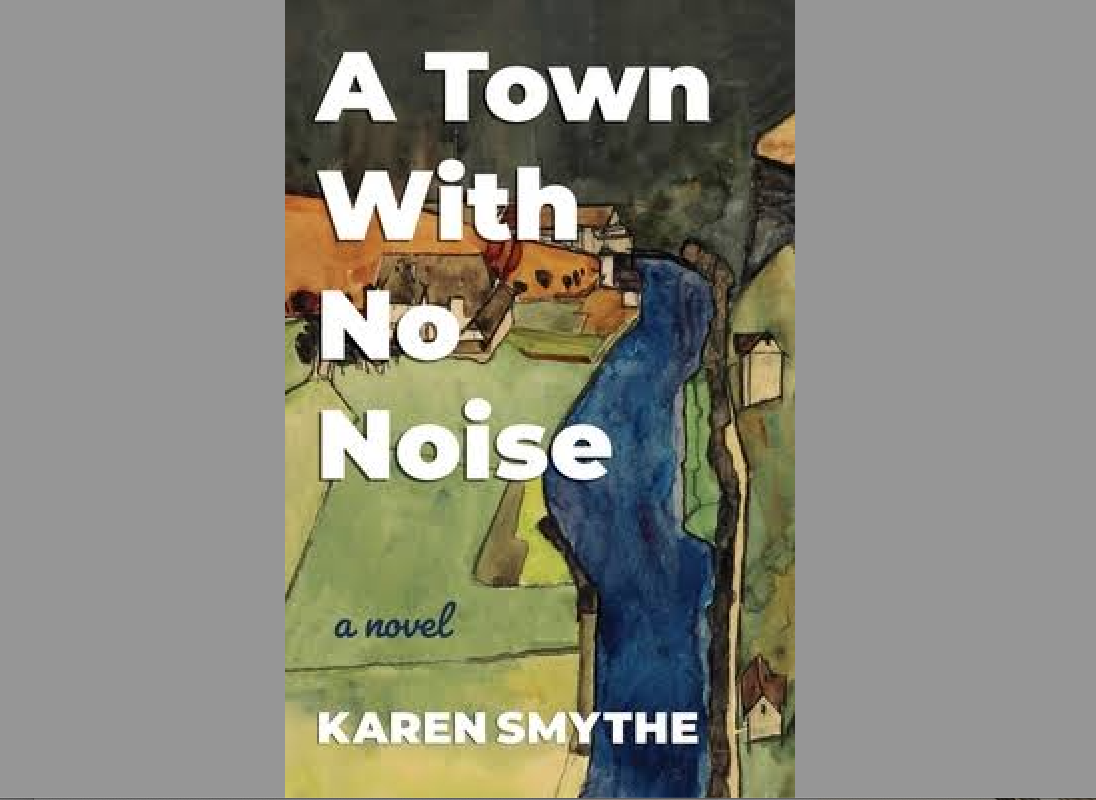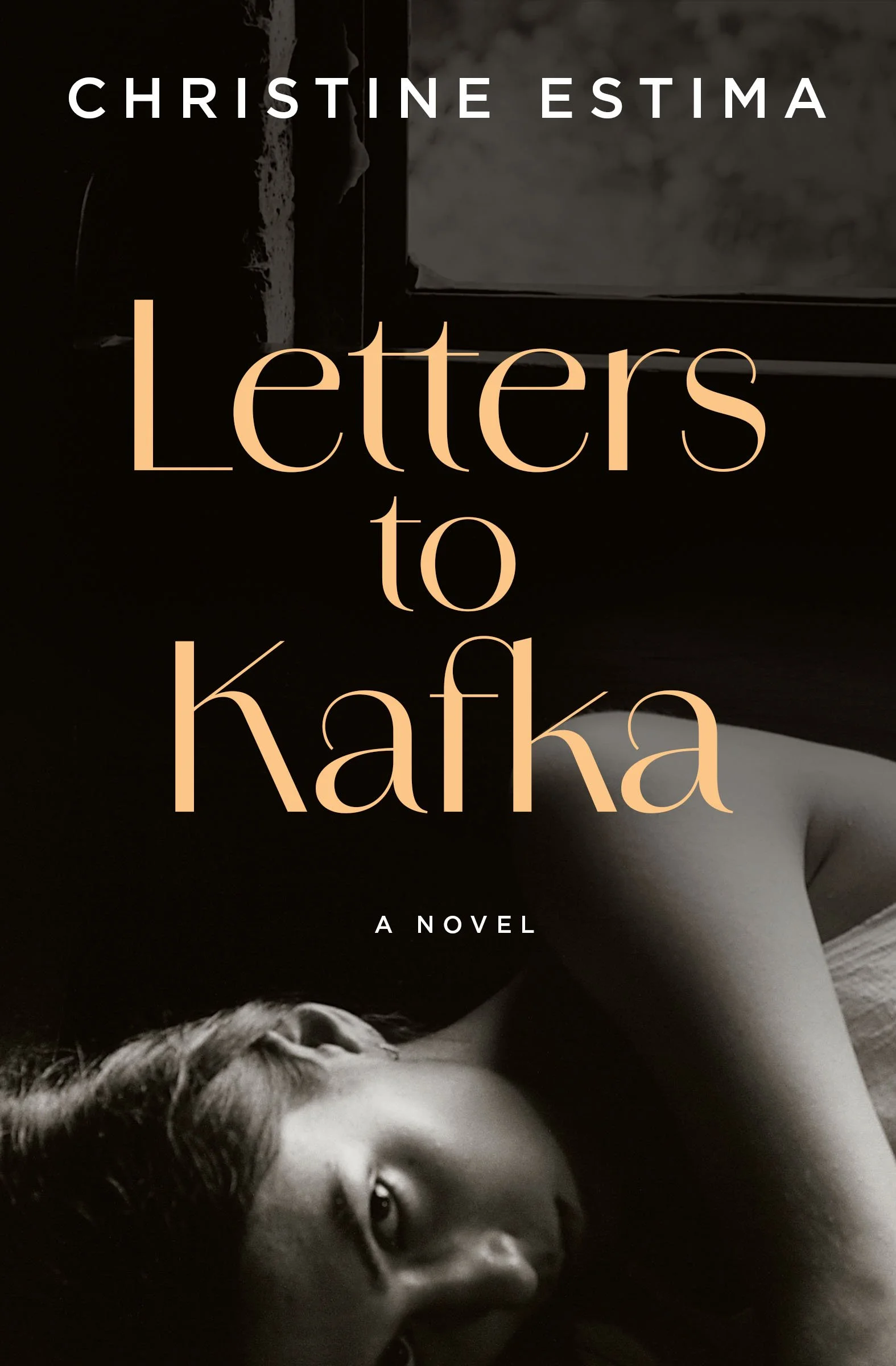
An Evening with Karen Smythe
On Monday September 29th, we will welcome back Karen Smythe to discuss her new novel, A Town With No Noise.
Tickets must be purchased in advance and are available for sale on this website. Books can be picked up at Words Worth Books, Waterloo.
June 2nd with Louise Ells
After a nine-month estrangement, sisters Lily and Rose, are reunited in a hospital emergency room when the younger sister’s husband has been badly injured in a car crash. While waiting for updates, they reminisce about their childhood memories in an effort to unearth the family tragedy - the death of their older sister Tansy. Lily and Rose begin to unravel the lies of omission that pulled them even farther apart.
Lies I Told My Sister is an exploration of how our community of loved ones can both buoy us up or tear us down. How innocently kept secrets can cause profound chasms.
A deeply affecting narrative that explores the most intimate of bonds as tragedy strikes a family and lies of omission and commission come to light. Ells has tenderly woven a tale lush with grief, fractured dreams and forgiveness as her beautifully rendered characters gradually reveal struggles with fertility, infidelity and missed opportunities. There is a delicate lyricism to this exquisite tale as Ells gently amplifies the desire to safeguard and protect those who are loved.
—Lucy E.M. Black, author The Brickworks, Stella’s Carpet, Eleanor Courtown, The Marzipan Fruit Basket
About the Author
Louise Ells was born and raised in Northeastern Ontario. After years of travel, she moved to Cambridge and earned her PhD in Creative Writing. She was a Hawthornden Fellow in 2017, and her short story collection, Notes Towards Recovery (Latitude 46, 2019). Louise teaches at universities and colleges in England and Canada and currently lives just north of Toronto, where she can often be found in her library surrounded by books and snuggled up with her cats.
An Evening with Marissa Staple
Marissa Stapley will join us to discuss her most recent novel, The Lightning Bottles. It’s part love story, part searing examination of the cost of fame, and a whole lot of rock n’ roll. The story of two misunderstood outsiders brought together by their shared passion for music interwoven with flashbacks to Jane and Elijah’s love story and their rise to fame during the grunge era, THE LIGHTNING BOTTLES is a poignant and gritty love letter to music–and a searing look at what happens when the stars we idolize come crashing back to earth.
MARISSA STAPLEY is the New York Times bestselling author of Lucky, which was the first-ever Canadian Reese’s Book Club pick (December 2021), as well as bestsellers Mating for Life, Things to Do When It’s Raining, and The Last Resort. Her next novel, The Lightning Bottles, a story of nineties rock and star-crossed love, will be published by Simon & Schuster in Fall 2024. She has also co-written the bestselling holiday rom-coms The Holiday Swap (a Book of the Month pick) and All I Want for Christmas under the pen name Maggie Knox. Her next rom-com, Three Holidays and a Wedding (September 26, 2023), is a collaboration with bestselling author and playwright Uzma Jalauddin. Many of her novels have been optioned for television and her journalism has appeared in publications across North America. She has also worked as a sports reporter, cemetery gardener, bartender, destination travel rep, stable hand, and magazine editor — but becoming an author is a dream she has harboured since the age of seven, when she decided she was going to be the next L.M. Montgomery. She lives in Toronto with her husband, two children and the best cat in the world — and is happiest while lakeside in Northern Ontario, a good novel or notebook and pen in hand.
An Evening with Connie Gault
February 24th, 6pm at Public Kitchen
Connie Gault will join us to discuss her most recent novel, The Rasmussen Papers’.
The Ramussen Papers’ unnamed narrator is so obsessed with the desire to write the biography of her literary hero, the late poet Marianne Rasmussen, that she assumes a false name and talks her way into the house of Rasmussen’s former lover, Aubrey Ash. The Rasmussen Papers is a brilliant reply to Henry James’ The Aspern Papers. Connie Gault flips James’ story on its head and slides it into contemporary Toronto’s Cabbagetown, among the marginalized and dispossessed, people the narrator studies as intently as she studies everyone she meets—until she is forced to reconsider the limits of what you can know of another’s story, and how hidden we all are, especially from ourselves.
November 4th with Rod Carley
public kitchen & bar, 300 Victoria St N, Kitchener, ON
drinks at 6; dinner at 6:30 ish; author talk around 8ish
marsha lederman
dinner service begins at 6 at public kitchen and bar 300 victoria street north kitchener.
dawn promislow
dinner service begins at 6 at public kitchen and bar 300 victoria street north kitchener.
aimee wall
drinks at 6; dinner at 7 at public kitchen at 300 victoria st north kitchener. author talk at 8ish
sarah winman
this is a LUNCHTIME EVENT. pick up your takeout lunch (if your ticket includes one) from public kitchen at 11:30. join the zoom call with sarah at 1:00. the link for the call will come to ticket purchasers by email a few days before the event.
linda rui feng
pick up takeout dinner between 2 and 5 from public kitchen restaurant 300 victoria st north.
dine in at public beginning at 6
zoom call begins at 7:00
maggie ofarrell june 21
pick up your lunch from public kitchen between 11 and 12 on monday june 21 then sit down for a zoom chat at 1:00
a virtual meeting with helen humphreys
anytime between 3 and 5:30, pick up a tasty dinner and dessert from public kitchen (300 victoria st north) to take home and warm up. then click on the zoom link (to be sent you in the days leading up to the event) for an hour of conversation with helen humphreys.
a virtual meeting with omar el akkad
anytime between 3 and 5:30, pick up a cozy dinner and dessert from public kitchen (300 victoria st north) to take home and warm up. then click on the zoom link (to be sent you in the days leading up to the event) for an hour of conversation with omar el akkad.
a virtual meeting with emma donoghue
pick up dinner from public kitchen (300 victoria st north) anytime between 3 - 5 pm. then settle in for the zoom call starting at 6:30 pm
a virtual meeting with dianne warren
watch for the invitation to join the zoom meeting arriving a day or two before the event. pick up your dinner from public kitchen the afternoon of the event. sit down and join the meeting at 6:30.
becky blake
public kitchen and bar at 300 victoria street
drinks at 6; dinner at 6:30 ish; author talk around 8ish
michael crummey
public kitchen and bar at 300 victoria street
drinks at 6; dinner at 7; author talk around 8ish
dave bidini
public kitchen and bar at 300 victoria street
drinks at 6; dinner at 7; author talk around 8ish
susan swan
public kitchen and bar at their NEW location 300 victoria street
drinks at 6; dinner at 7; author talk around 8ish
sarah henstra
public kitchen and bar at their NEW location 300 victoria street
drinks at 6; dinner at 7; author talk around 8ish
pamela mulloy
public kitchen and bar at their NEW location 300 victoria street
drinks at 6; dinner at 7; author talk around 8ish
elizabeth renzetti
public kitchen and bar at their NEW location 300 victoria street
drinks at 6; dinner at 7; author talk around 8ish
karen connelly
public kitchen and bar at their NEW location 300 victoria street
drinks at 6; dinner at 7; author talk around 8ish
karen smythe
at nick and nat's uptown 21 at 21 king st n waterloo
parking at waterloo town square or public lot at regina/erb
drinks at 6; dinner at 7; author talk around 8ish
stephen heighton
at public kitchen, 295 Lancaster St W, Kitchener
drinks at 6; dinner at 7; author talk around 8ish
barbara gowdy
at nick and nat's uptown 21 at 21 king st n waterloo
drinks at 6; dinner at 7; author talk around 8ish
kerry clare
at nick and nat's uptown 21 at 21 king st n waterloo
drinks at 6; dinner at 7; author talk around 8ish

